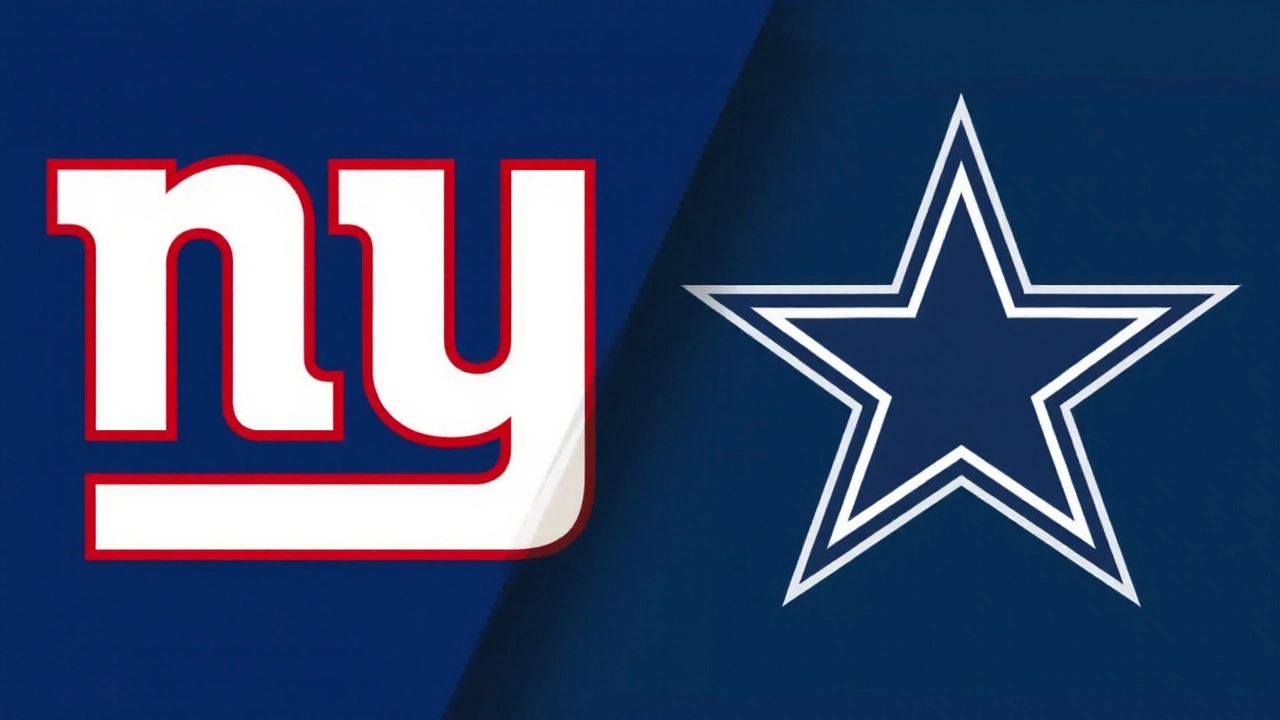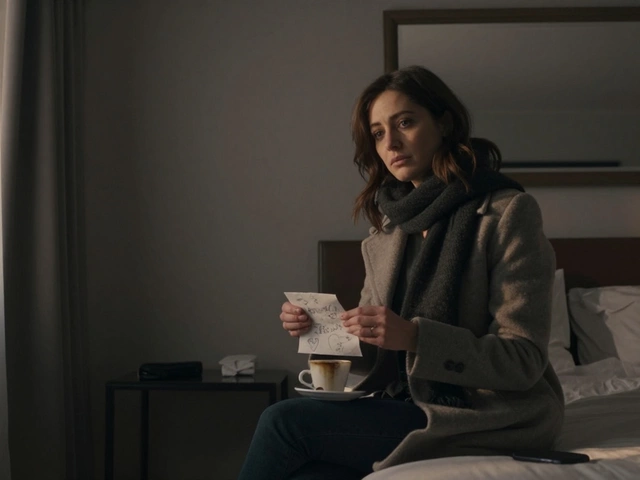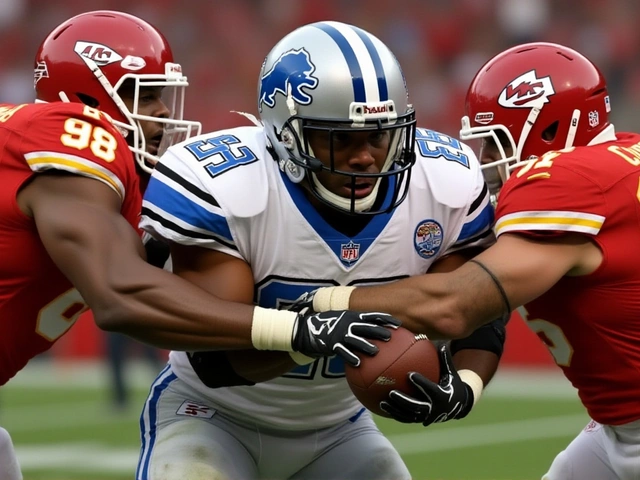An overtime classic in Arlington
A 64-yard missile, a last-second equalizer, and a walk-off kick in overtime—Dallas needed every bit of composure to escape with a 40-37 win over the Giants in a game that veered from gritty to downright wild. AT&T Stadium saw 77 total points, a surge of flags that kept the crowd guessing, and a rivalry tilt that swung on field position and nerves more than style points.
New York set the tone early, punching in 6 points in the first quarter while Dallas opened flat and scoreless. The Cowboys answered in the second with 10, but the Giants kept pace with 7 to hold a 13-10 halftime edge. The third quarter tightened the screws: New York’s field goal made it 16, then Dallas matched with a touchdown to level it 16-16. By then, it felt less like a script and more like a coin toss.
The fourth quarter detonated. The Giants burst for 21, and Dallas fired back with 20—an exchange of body blows that left both defenses searching for answers and both sidelines wrestling with the penalty tally. Every swing seemed to come with a counterpunch, and every big play seemed to carry a second act: a flag, a review, or a clock reset that yanked momentum from one jersey to the other. When the Cowboys drove late and lined up a long one, the building held its breath.
That’s where Brandon Aubrey changed the math. His 64-yarder—one of the longest kicks in Cowboys history—wasn’t just a jaw-dropper; it stabilized Dallas’s belief at a moment when the Giants had seized control. He then tied the game in the final seconds of regulation, sending it to overtime with the kind of calm that travels well in a rivalry that rarely offers it.
Overtime, shortened to 10 minutes in the regular season, puts a premium on first possession, field position, and restraint. The rules still allow a sudden finish if the first drive ends in a touchdown; a field goal opens the door for an answer. Dallas didn’t force it. They took yards, protected the ball, and trusted the leg that had carried them all night. When the Cowboys set him up again, Aubrey drilled the game-winner to close out a 40-37 escape.
The victory extends a recent run of dominance: Dallas has now won eight straight against New York. That matters in the NFC East, where tiebreakers and head-to-head streaks shape playoff paths. For the Giants, it’s a second straight road loss to open the season, and it stings because they had the fourth-quarter pop to put this away. For the Cowboys, it’s proof of resilience after a slow start and a messy whistle-filled night.
About those flags: the tempo never found a clean rhythm. Dallas and New York both had drives stretched or stalled by penalties—illegal contact here, a false start there, the occasional special-teams infraction that turned routine returns into live-wire plays. It wasn’t pretty, but it was gripping, and it made situational football—clock, field position, discipline—the whole story.
Special teams tilt the balance
This was a special teams game wrapped in an offensive shootout. Aubrey, a former professional soccer player who carved his path through the USFL before joining Dallas, hit four field goals, including that 64-yard bomb in regulation, plus the must-have kick to force overtime and the winner in the extra frame. He was the difference, not only on the scoreboard but also in the confidence Dallas showed in its late-game decision-making. Trust your kicker, and the playbook stays open.
New York’s return units were sharp. Tyrone Tracy Jr. delivered 5 kick returns for 132 yards, averaging 26.4 per runback with a long of 30, while Gunner Olszewski added a 29-yard return. The Giants totaled 6 kick returns for 161 yards. On punts, Olszewski handled the load with 3 returns for 38 yards, averaging 12.7 and popping a long of 21. Those numbers matter: they flip the field, tilt short drives into scoring range, and put strain on coverage units that are already walking the penalty tightrope.
Dallas answered with volume. KaVontae Turpin led the Cowboys with 4 kick returns for 100 yards (25.0 per return). Jalen Tolbert chipped in 4 returns for 85 yards, and Miles Sanders added a 24-yarder. In total, the Cowboys stacked 9 kick returns for 209 yards, averaging 23.2. That’s a lot of live-ball reps for a coverage unit to survive, and yet Dallas found enough lanes and enough tackling discipline to keep the game within reach while Aubrey handled the scoring swings.
Coaching choices were everywhere, especially late. Dallas’s call to try a 64-yarder in regulation wasn’t conservative or reckless—it was the product of a week where the staff clearly trusted its specialists. That decision bought time and bought belief. New York’s choice to be aggressive on returns also paid dividends, forcing the Cowboys to cover more ground and defend more snaps, which mattered as the fourth quarter dragged into overtime.
The hidden yardage told the tale. With both offenses finding late explosives and both defenses giving up chunk plays, the team that handled the small edges better—kick depth, directional punts, clean holds on the edge—owned the last possession. On a night with heavy whistles, clean operations on the kick units stood out, from the long snap to the hold to the strike.
For the Giants, there are real takeaways beyond the 0-2 start. The return game is a weapon. The offense has a fourth-quarter gear. But the late-game defense and the penalty count are bleeding points. Clean just one of those up, and they close out a game like this on the road. The schedule won’t wait, but the tape won’t lie either: situational focus is the fix.
For Dallas, this is a confidence builder with caveats. The fight after a scoreless first quarter says something, so does the composure to trade punches in a frantic fourth and still manage the clock. But the flags were costly, and living off long kicks is not a weekly plan, even with a hot leg. The good news? When the game turned into a nerve test, the Cowboys had the steadiest player on the field.
That streak against New York now stretches to eight straight, and the formula has hardened: win special teams, avoid the catastrophic turnover, and lean on the roster’s depth while the stars handle the pressure snaps. It’s not flashy, but in a rivalry that tends to stretch into the weird and chaotic, it travels. On Sunday night, it traveled just far enough—for 64 yards, and then a few more—to the top of the NFC East conversation.





